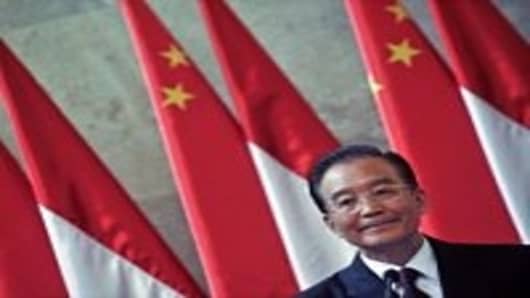The EU has stalled a controversial trade case against Chinese telecommunications companies, defusing a row with Beijing on the eve of premier Wen Jiabao’s last summit with European leaders.
Karel De Gucht, the EU trade commissioner, has told officials that the anti-subsidy case, which was seen as proof of a more assertive stance towards China, required stronger evidence before it could proceed, according to people briefed on the meeting.
Commission staff insist the move is not tied to Mr Wen’s visit on Thursday, or to stronger pressure from Beijing – as well as from some EU member states, worried about Chinese retaliation – to drop the case.
However, it comes just weeks after EU-China trade relations were buffeted by the commission’s decision to launch an investigation into Chinese solar panel manufacturers. That ranks as the bloc’s biggest ever investigation, in terms of the value of exports involved, and brought hints of retaliation from Beijing.
The telecommunications dispute centres on whether Beijing has provided export credits and other illegal subsidies to Huawei and ZTE , two leading makers of mobile phone technology.
The commission’s move emerged as Washington has taken a more aggressive stance against alleged Chinese trade infringements, which have become an issue in the US presidential election campaign. The Obama administration on Monday launched a case against China over its export subsidies on cars and car parts, its second trade complaint in as many months.
Senior EU officials said Mr De Gucht’s decision came after senior Chinese diplomats indicated Beijing was interested in resolving the dispute through negotiations. The EU has been pushing China to limit the export credits it uses to promote its industries overseas. A spokesperson for Mr De Gucht declined to comment.
The telecoms case is potentially more sensitive than the solar case because of the strategic nature of the industry and the cutting-edge technology involved.
EU officials insist that they have not dropped or downgraded the investigation. But efforts to gather fresh evidence have been hindered by the fact that the biggest EU telecom equipment companies – Ericsson, Siemens-Nokia and Alcatel-Lucent – have declined to co-operate. All have sizeable business interests in China.
Under EU trade rules, the commission must establish not only the existence of illegal subsidies, but also that they have done harm to European companies.
The case appeared to be imminent in late May after Mr De Gucht’s office told EU diplomats in a closed-door meeting that they had compiled “very solid evidence” that the Chinese companies had benefited from illegal subsidies, which had enabled them to dump their products – or sell them below cost – in the EU. Huawei and ZTE have both denied this.
Huawei’s chief executive was in Brussels last week, where he met commission officials but not Mr De Gucht. A vice-minister from China’s ministry of commerce also visited Brussels last week to meet trade officials.
Both Sweden and Germany have expressed reservations about the case, according to diplomats, which has also weakened Mr De Gucht’s hand.


